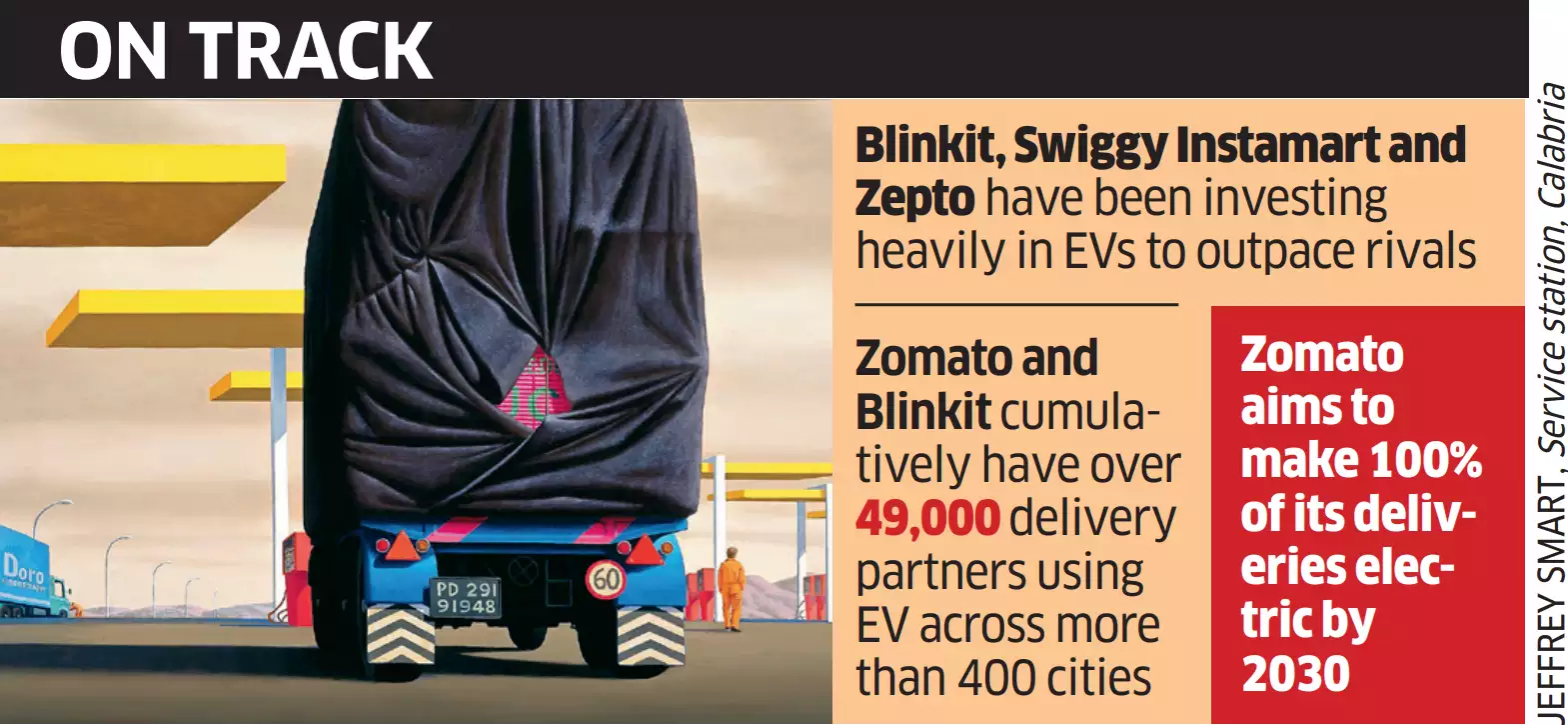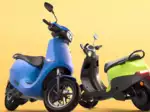Battery-swapping companies cash in on quick commerce’s EV turn

Increasing use of electric vehicles for last-mile deliveries in the quick commerce sector is driving business for startups building charging infrastructure and providing battery swapping services.
Platforms such as Blinkit, Zepto, Swiggy Instamart and Flipkart’s Minutes that are fighting for market share in the fast-growing but highly competitive quick commerce space are adopting EVs as a means to cut operating costs associated with deliveries, even as they are burning cash on marketing, discounts and dark store expansion. That is bringing significant business to EMO Energy, BatterySmart, Kazam and other startups which are providing charging and energy management solutions to the delivery partners of these platforms.
EMO Energy, which provides hardware and software battery solutions, gets as much as 90% of its business from quick commerce platforms, said cofounder Sheetanshu Tyagi.

The startup has already set up fast-charging facilities at nearly 200 stores of Blinkit and BigBasket, he said. “We're planning to scale this up to almost 10,000 stores, with around 100,000 vehicles on the road using our battery packs and energy ecosystem,” he said.
EMO Energy raised USD 6.2 million in an equity funding round led by Subhkam Ventures earlier this year, primarily to scale up its two- and three-wheeler energy solution to serve more than 100,000 vehicles over the next two years.
It raised funds at a time when financing in India’s EV sector has seen a decline in financing. The money raised in the sector has nearly halved between 2022 and 2024, primarily due to policy shifts and a push from investors for improved unit economics and profitability. However, startups like EMO Energy remain optimistic, as they expect growing demand from the quick commerce space to keep investors interested in the segment.
Zomato and its Blinkit quick commerce unit cumulatively had more than 49,000 delivery partners using EV in over 400 cities as of end-September. Zomato aims to make 100% of its deliveries electric by 2030.
Swiggy and Zepto did not comment.
Flipkart Minutes, which entered the quick commerce space around August last year, is trying to strengthen its EV infrastructure by building charging stations at dark stores to enable ease in logistical movement.
“Currently, over 20% of our deliveries are fulfilled using electric vehicles, and we are actively working towards expanding our EV fleet,” said a spokesperson at the Walmart-owned firm.
“Fleet and charging management systems enhance operational efficiency by up to 30%. Over 35% of quick commerce deliveries in cities like Delhi and Bengaluru are already EV-based, projected to reach 50% by 2027,” said a spokesperson at Kazam EV Tech, which operates at more than 300 dark stores and fulfilment hubs in 53 cities.
Kazam, which provides charging products and services to Zepto, Blinkit and BigBasket, reported 126% revenue growth between December 2023 and December 2024, with quick commerce becoming its second-largest revenue contributor.
EV manufacturers have also realised the demand in the quick commerce and the larger ecommerce space. Recently, Bengaluru-based Ola Electric launched new electric scooter variants with removable batteries targeted at gig economy workers, many of whom work as delivery partners for quick commerce platforms.
Pulkit Khurana, founder of battery-swapping services provider BatterySmart, said gig workers on quick commerce platforms represented a key customer segment for his company, with demand from this group steadily increasing.
“One of our major customer segments is gig workers who are working for quick commerce, and we are definitely seeing a lot of demand there. We have partnered with various quick commerce companies, like Zepto and Zomato, to make battery swapping easily accessible for their users,” Khurana said.
BatterySmart partnered with Zepto last year to provide delivery partners with access to more than 1,000 battery-swapping facilities. The startup reported revenue of Rs 165 crore for fiscal 2024, nearly three times more compared with Rs 56 crore the previous year.

